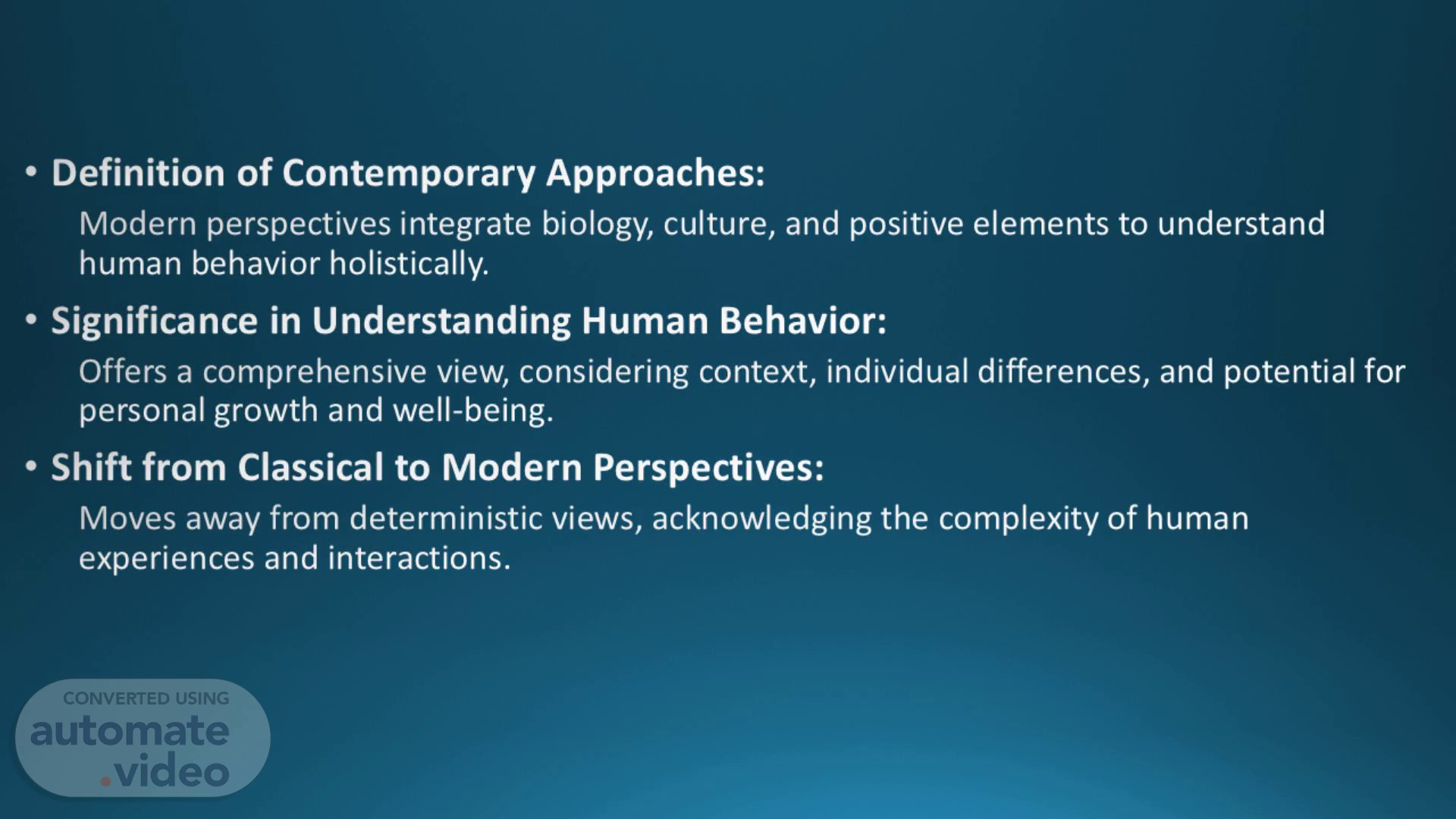
Page 1 (0s)
[Audio] Welcome to our exploration of contemporary approaches in psychology. These approaches represent a shift from traditional, deterministic views to a more holistic understanding of human behavior. We'll delve into perspectives that integrate biology, culture, and positive elements, providing a comprehensive framework to navigate the complexities of the human mind..
Page 2 (24s)
[Audio] Biological psychology, also known as neuroscience, investigates the intricate relationship between our biology and behavior. Genes influence our traits and susceptibility to mental disorders. Exploring brain structures and functions helps us understand how specific regions contribute to various behaviors, and the study of neurotransmitters sheds light on the chemical basis of psychological processes. The applications of biological psychology extend to understanding mental disorders and guiding the development of psychotropic medications..
Page 3 (1m 0s)
[Audio] Socio-cultural psychology emphasizes the impact of social and cultural factors on individual behavior. Cultural norms shape our actions, and social identity theory explains how we define ourselves in relation to social groups. Cross-cultural studies help identify universal and culture-specific aspects of behavior. This perspective finds applications in areas like therapy, where cultural competence enhances effectiveness, and in understanding how societal norms influence behavior in domains such as marketing and public policy..
Page 4 (1m 37s)
[Audio] Positive psychology focuses on the brighter aspects of human experience. It encourages us to identify and nurture personal strengths and virtues. Subjective well-being, encompassing life satisfaction and positive emotions, is a central theme. Positive interventions, such as mindfulness and gratitude exercises, contribute to mental health. This approach has practical applications, complementing traditional therapy and finding a place in education and the workplace, where it enhances motivation, productivity, and overall satisfaction..
Page 5 (2m 15s)
[Audio] As we conclude, it's crucial to recognize the symbiotic relationship between these perspectives. Biological, socio-cultural, and positive psychology are not mutually exclusive but rather complementary. To truly understand human behavior, we must integrate these diverse viewpoints. I encourage you to explore these approaches in your respective fields, fostering a nuanced and holistic approach to mental health and well-being. Thank you for joining our journey into the fascinating world of contemporary psychology..